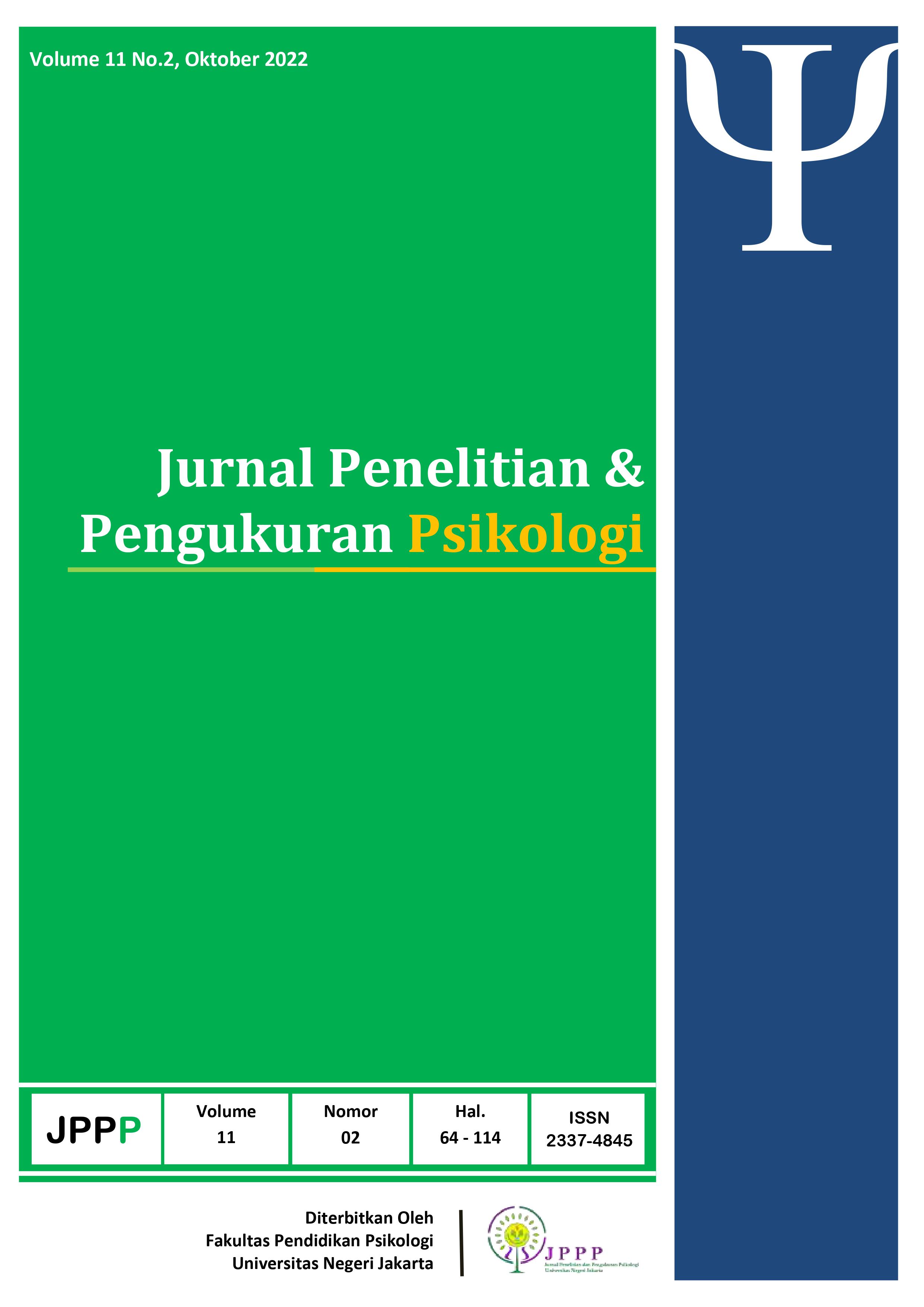Peranan Self Disclosure Terhadap Stres Mahasiswa Saat Kuliah Daring di Masa Pandemi Covid-19
DOI:
https://doi.org/10.21009/JPPP.112.06Keywords:
Self-disclosure, stress, brave lectures, Covid-19 pandemicAbstract
The Covid-19 pandemic has forced many state goverments to present learning alternatives in the form of bold learning. However, the alternative clearly has an impact on students' stressful conditions. Understanding stress is knowing the situation experienced or self-disclosure. This study aims to examine the relationship between self-disclosure and student stress while undergoing courageous lectures during the Covid-19 pandemic. The method used is qualitative with a cross sectional design conducted on X University students. The data analysis used is a simple linear regression test. The significance value is 0.048 (ɑ < 0.05) with a B value (regression coefficient) of 0.311 and an R Square value of 0.02. That is, there is a positive relationship of self-disclosure to stress with a contribution of 2%. The picture of student stress is at the moderate level (45.6%) and the picture of self-disclosure is at the moderate level (49.2%). There is a positive relationship between self-disclosure and stress on X student
References
Handayani, V. F., Arisanti, I., & Atmasar, A. (2019). Pengaruh pengungkapan diri (self disclosure) terhadap stres pada mahasiswa yang mengerjakan skripsi di Fakultas Ekonomi dan Bisnis Universitas Teknologi Sumbawa. Jurnal Psimawa Diskursus Ilmu Psikologi & Pendidikan, 2(1), 47-51. doi : https://doi.org/10.1234/jp.v2i1.437
Moore, J. L., Dickson-Deane, C., & Galyen, K. (2011). E-Learning, online learning, and distance learning environments: Are they the same?. Internet and Higher Education, 14(2), 129-135. doi: https://doi.org/10.1016/j.iheduc.2010.10.001
Musradinur. (2016). Stres dan cara mengatasinya dalam persektif psikologi. Jurnal Edukasi, 2(2), 183–199. doi: http://dx.doi.org/10.22373/je.v2i2.815
Pinakesti, A. R. A. (2016). Self-disclosure dan stres pada mahasiswa. Skripsi, Universitas Muhammadiyah Malang, Malang, Indonesia.
Prasetyo, B. & Jannah, L. M. (2010). Metode Penelitian Kuantitatif Teori dan Aplikasi. Jakarta: PT Rajagrafindo Persada.
Pulungan, R., Ginting, L. S. D. Br., & Nasution A. S. (2020). Kelebihan dan kekurangan e-lerning berdasarkan pengalaman mahasiswa UMN AL Washiliyah. Seminar Hasil Penelitian, 1(1), 504-507. https://e-prosiding.umnaw.ac.id/index.php/penelitian/article/view/796
Saputri, K. A. & Sugiharto, D. Y. P. (2019). Hubungan antara self efficacy dan social support dengan tingkat stres pada mahasiswa akhir penyusun skripsi di FIP UNNES. Konseling Edukasi: Jornal of Guidance and Counseling, 4(2), 101-122. doi : http://dx.doi.org/10.21043/konseling.v3i2.6010
Sugiyono. (2017). Metode penelitian kuantitatif, kualitatif, dan R&D. Bandung: Alfabeta.
Widi, R. K. (2010). Asas metodologi penelitian sebuah pengenalan dan penuntun langkah demi langkah pelaksanaan penelitian. Yogyakarta: Graha Ilmu.







